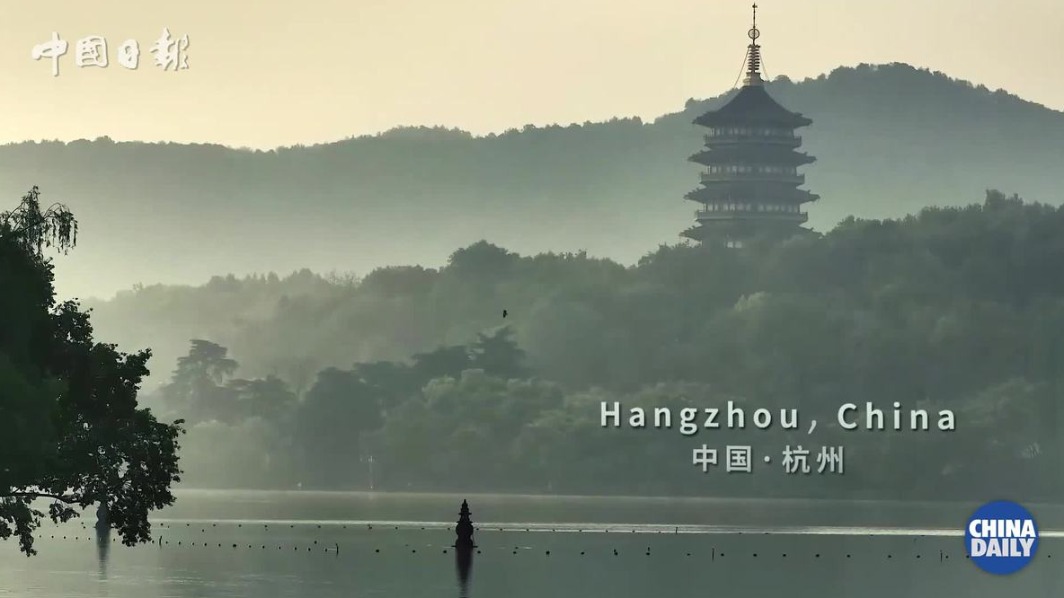german students experience traditional tea culture in china
over 20 students from the leibniz confucius institute in hannover, germany, recently embarked on a journey to hangzhou, the capital of east china's zhejiang province, as part of a summer camp to deepen their understanding of the country.
marked as one of the initial summer camps in china organized by the german confucius institute after the covid-19 pandemic, this excursion scheduled from aug. 20 to sept. 2 will take the students to explore shanghai and its neighboring city, hangzhou.
during their stay last weekend in hangzhou, reputed as the e-commerce capital of china, the students had the opportunity to immerse themselves in the convenience facilitated by cutting-edge internet technologies such as mobile payments and shared bicycles. also, their exploration led them to the china national tea museum, where they engaged in the ancient art of the tea ceremony from the song dynasty (960-1279).
the richness of china's tea culture left an indelible impression on their minds.
cai lin, director of the leibniz confucius institute, said the summer camp for german young people has occurred in china for many years. "this year, following the hiatus caused by the pandemic, the project has been reinitiated, with a majority of the students being newcomers to the country."
"the core purpose is to enable these students to perceive a real china through their own eyes," cai said.
hangzhou is the principal production area for longjing tea, renowned as one of china's most distinguished green tea varieties. at the china national tea museum, the students learned about the multifaceted significance of tea. it transcends being merely a commodity traded between china and the rest of the world and becomes an emblem of cross-cultural exchange.
tobias bodi, a student from hannover university of applied sciences and arts, shared that although tea cultivation is not viable is germany due to its climate, drinking tea was once popular in germany. he highlighted how even frederick the great constructed a tea pavilion in his palace.
place tea powder into a bowl, add a small portion of boiling water to form a paste, and gradually pour more hot water while using a tea whisk to create a delicate froth. at the museum, the students also had the opportunity to experience diancha, or tea-whisking, a tea-making technique of the song dynasty.
ralph preiss, a student from the university of vienna, expressed his delight in the experience, saying that the tea ceremony was profoundly meaningful.
"the tea ceremony is the process of communication, which can make people become closer and is a valuable way of cultural exchange," preiss said.
-
'nice' to meet you, hangzhou
may 6, 2024

